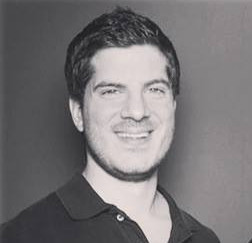The deeper I have gone into IFS and helping clients improve their relationship with themselves, the more I have encountered a problem IFS refers to as legacy burdens: emotional pain that affects our lives but came to us from others. Families are a common source of such issues. While a legacy burden can be tricky issues to tackle in normal approaches, IFS provides us with an excellent way to release these legacy burdens–all while opening the door to honoring the greatest gifts our families have to offer.
I specialize in helping individuals who struggle due to high self-pressure and self-criticism. Most clients battle with pain that originated from their own experiences. A highly self-critical person may have grown up in a household where they were constantly judged and critiqued. Becoming self-critical may have become a coping mechanism that allowed them to survive. Or, a highly self-critical person may have looked out into the world, saw what happened to people who “weren’t enough,” and wanted to make sure they didn’t suffer the same problems. Regardless of form, these burdens all start from the client’s personal experience.
But that’s not always the case. Sometimes when I’m helping a client explore their inner world, we come upon a form of self-criticism or self-conflict that didn’t start from direct experience. While it may generate pain in their own lives, its roots come from elsewhere. There is a legacy to this pain.
John’s Legacy Burden – And How It Was Released
(This story, like all client stories, has been modified to protect identities.)
I was working with John, a client in his mid-30s, who engaged in high self-criticism and constant self-sabotage. At first, I assumed this was a normal form of self-conflict. Sabotaging ourselves often occurs when there is a specific fear part of us wants to avoid. For example, I’ve seen many clients engage in self-sabotage because part of them is terrified of social judgment. It remembers painful episodes from their past and doesn’t want them to do anything that would warrant social attention. Better they stay in the shadows where it’s safe and familiar; nobody can hurt them there.
Yet this was not John’s problem.
The more we explored John’s self-sabotage, the more we heard about his family. Using classic IFS techniques, we slowly worked with his parts until we found the part of him responsible for the self-sabotaging behavior. When we asked why it was behaving this way, it said, “John isn’t allowed to have what he wants. If he is allowed to be happy and achieve goals, he’ll be abandoning his family.”
When I asked John if this made sense to him, he began to cry and said yes. The belief “We can’t have what we want” was etched in his family, especially among the men in his direct line. His grandfather helped create a product that would later sell for millions, but he was cut out of the deal at the last minute by his business partners. Too poor and uneducated to know how to fight back, he never saw a dime. John’s father had big dreams and aspirations, yet he ended up sacrificing his life to take care of his father (John’s grandfather) who became an addict to deal with the constant grief. When talking with John, he frequently talked about “what could have been.”
John was dealing with a legacy burden – which was being carried by his protective sabotaging part. When we asked this part what it was afraid would happen if John was allowed to succeed, it said he would violate his loyalty to his family. “I’d be leaving my dad behind,” John’s part said. “How could I let myself be so happy when he still feels so much pain?” While John rationally knows he doesn’t need to share his family’s pain—in fact, they’d likely want to see him succeed—this deep emotional part is convinced mutual pain is the best way to stay loyal and connected.While we are still working with this part, the way ahead is clear. Armed with open curiosity and compassion, our job is to help this part eventually realize at least two things: a) John is his own man who is not responsible for someone else’s pain, and b) John could have an even better relationship with his family without this constant struggle. We know this part is concerned about loyalty to the family and helping John be a good son and grandson. We can honor those concerns and find better ways to realize them.
Over the course of a few sessions, John’s parts reached a point where they were finally ready to release this legacy burden. Soon after, he stated that he had felt lighter than he had ever felt in his adult life – and that he was ready to create a life that would let him truly thrive.
Legacy Burdens Aren’t Just Pain
Families can also be incredible sources of positive traits and experiences. For example, I have another client who struggles with high self-criticism because, in part, he grew up in a household of highly self-critical parents who modeled and taught this behavior. Doing legacy work is part of his journey too, as he needs to learn how to let go of this pain without feeling like he’s abandoning his family. Yet, the self-criticism his family has engaged in has led to gifts as well: a strong work ethic, high personal standards, ability to persevere through difficulty, resiliency, and the ability to be self-aware and acknowledge personal faults. These are noble traits that—when used in moderation—can lead to fantastic lives. We can keep these gifts while releasing the emotional baggage around them. Once that’s done, he’ll be able to use these gifts better than ever.
Each one of us are alive because of the rich heritage behind us. From the beginning of life on Earth, our ancestors overcame obstacles, fought through difficulty, and showed tenacity in order for us to be here now. Strength isn’t something we have to aspire to…it’s flowing in our veins. Learning how to tap into this strength while releasing our legacy burdens is one of the greatest gifts we can give to both ourselves and our families.
Releasing Patterns
Is there a pattern of emotional pain or self-conflict in your family that you also recognize in your own life? Do you feel like you may be dealing with legacy burdens? Drop me a note and begin the discovery process today! The only way to know what’s going on inside you is to start the journey within.




